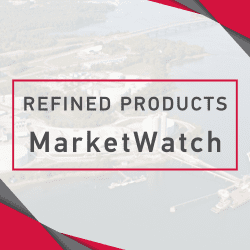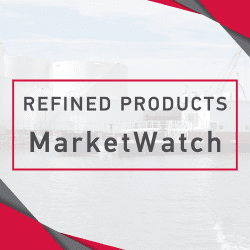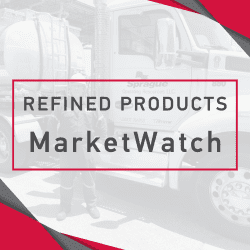Recap: The oil market on Friday continued on its upward trend and settled higher for a second consecutive week as it remained well supported by the economic prospects for China and the expectations of an increase in its fuel demand following the lifting of the COVID-19 restrictions. The Baker Hughes report also lent some support later in the session as the U.S. oil rig count fell by 10 to 613, the lowest level since November. The oil market traded mostly sideways in overnight trading and posted a low of $79.69 early in the session. However, the market bounced off that level and rallied to a high of $81.64 ahead of the February contract’s expiration at the close. The February WTI contract went off the board up 98 cents at $81.31 and up 1.82% on the week. The March WTI contract settled up $1.03 at $81.64, the highest close since November 17th after the contract bounced off a low of $79.91 and rallied to a high of $81.91 in afternoon trading. Meanwhile, the March Brent contract settled up $1.47 at $87.63. The product markets also remained well supported, with the heating oil market settling up 9.09 cents at $3.4668 and the RBOB market settling up 4.86 cents at $2.6454.
Technical Analysis: The oil market is still seen trading within its upward trending channel as the market remains focused on the expected increase in Chinese oil demand. Technically, the market’s stochastics which are in oversold territory, still look like they are trending higher. The March WTI contract is seen finding resistance at its high of $81.91, $82.51, its 62% retracement level off a low of $70.56 to a high of $89.89, followed by $82.66, $82.71 and $83.14. More distant upside is seen at $84.03, basis a trendline. Meanwhile, support is seen at its low of $79.91, $78.45, $78.20, basis its trend channel, and $77.35.
Fundamental News: Traders said China's Unipec has swept up low-priced supplies of crude from Abu Dhabi, Brazil and the United States, taking advantage of a decline in supertanker freight rates and spot prices in a well-supplied market. The purchases by the trading arm of Asia's largest state-backed refiner Sinopec come amid expectations for a rebound in oil demand in the second quarter after the world's second largest economy scrapped a "zero-COVID" policy last year. Unipec snapped up another four cargoes of Abu Dhabi's Upper Zakum crude loading in March this week, taking its total purchases of the medium sour grade to about 17 cargoes or 8.5 million barrels this month. In addition, Unipec bought this month at least five Very Large Crude Carriers of Brazilian crude oil and three VLCCs of U.S. crude, to be loaded at the end of January and in early February. Each VLCC can carry up to 2 million barrels of oil. Analysts expect China's oil demand to resume from March, with a return of industrial activity alongside an economic rebound, while more people are set to travel after recovering from COVID-19 infections.
Russia remained China's second-largest source of crude oil in 2022, following Saudi Arabia, as Chinese refiners imported low-cost Russian barrels while Western countries shunned them after the Ukraine crisis. Data from the General Administration of Customs showed that China's crude oil imports from Russia increased by 8% in 2022 from a year earlier to 86.25 million tons or 1.72 million bpd. In December, it imported 6.47 million tons of crude oil from Russia or 1.52 million bpd, compared with 1.7 million bpd in the same period in 2021. Saudi Arabia shipped a total of 87.49 million tons of crude to China in 2022, equivalent to 1.75 million bpd on par with the level in 2021.
IIR Energy said U.S. oil refiners are expected to shut in about 1,202,000 bpd of capacity in the week ending January 20th, cutting available refining capacity by 208,000 bpd.
Colonial Pipeline Co is allocating space for Cycle 7 shipments on Line 1, its main gasoline line from Houston, Texas to Greensboro, North Carolina. The current allocation is for the pipeline segment north of Collins, Mississippi. Colonial Pipeline Co is also allocating space for Cycle 7 shipments on Line 2, its main distillate line from Houston, Texas to Greensboro, North Carolina. This allocation is for the pipeline segment north of Collins, Mississippi.
Early Market Call – as of 8:40 AM EDT
WTI – February $82.38, up 74 cents
RBOB – February $2.6680, up 2.26 cents
HO – February $3.5014, up 3.46 cents
View the Sprague Refined Products Market Watch Report in a downloadable pdf format by clicking below.
Click to view more online:
Heating Oil Supplier
Diesel Supplier
View market updates
View our refined products glossary
Go to SpraguePORT online









